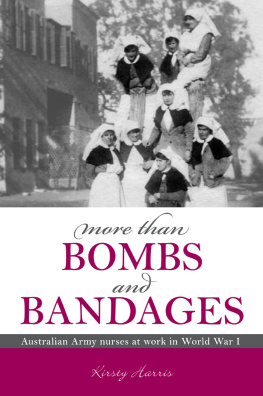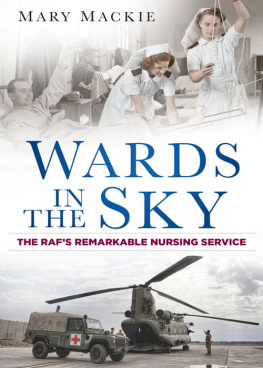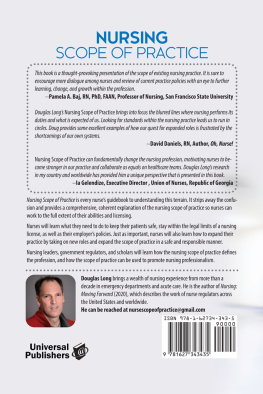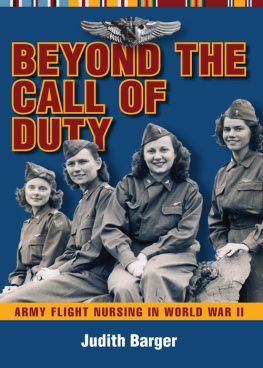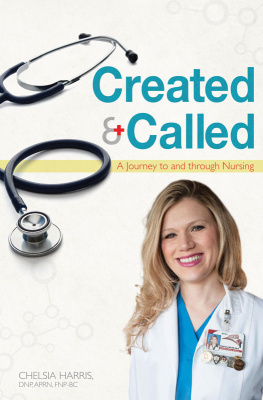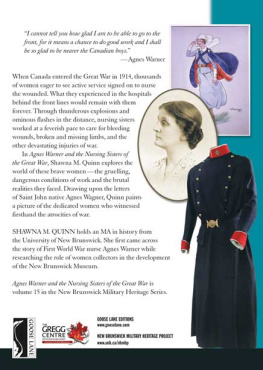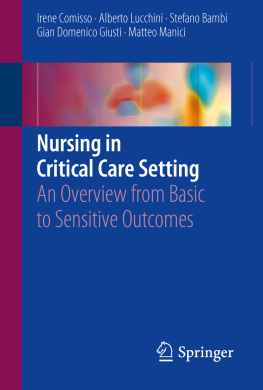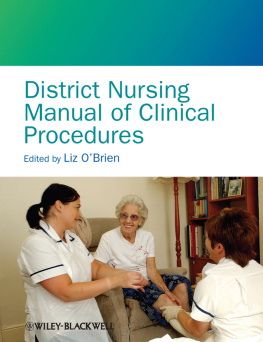
Negotiating nursing
Series editors: Christine E. Hallett and Jane E. Schultz
This series provides an outlet for the publication of rigorous academic texts in the two closely related disciplines of Nursing History and Nursing Humanities, drawing upon both the intellectual rigour of the humanities and the practice-based, real-world emphasis of clinical and professional nursing.
At the intersection of Medical History, Womens History and Social History, Nursing History remains a thriving and dynamic area of study with its own claims to disciplinary distinction. The broader discipline of Medical Humanities is of rapidly growing significance within academia globally, and this series aims to encourage strong scholarship in the burgeoning area of Nursing Humanities more generally.
Such developments are timely, as the nursing profession expands and generates a stronger disciplinary axis. The MUP Nursing History and Humanities series provides a forum within which practitioners and humanists may offer new findings and insights. The international scope of the series is broad. It embraces all historical periods and includes both detailed empirical studies and wider perspectives on the cultures of nursing.
Previous titles in this series:
Mental health nursing: The working lives of paid carers in the nineteenth and twentieth centuries
Edited by Anne Borsay and Pamela Dale
One hundred years of wartime nursing practices, 18541953
Edited by Jane Brooks and Christine E. Hallett
Curing queers: Mental nurses and their patients, 193574
Tommy Dickinson
Histories of nursing practice
Edited by Gerard M. Fealy, Christine E. Hallett and Susanne Malchau Dietz
Nurse Writers of the Great War
Christine Hallett
Who cared for the carers? A history of the occupational health of nurses, 18801948
Debbie Palmer
Colonial caring: A history of colonial and post-colonial nursing
Edited by Helen Sweet and Sue Hawkins
NEGOTIATING NURSING
BRITISH ARMY SISTERS AND SOLDIERS IN THE SECOND WORLD WAR
JANE BROOKS
Manchester University Press
Copyright Jane Brooks 2018
The right of Jane Brooks to be identified as the author of this work has been asserted by her in accordance with the Copyright, Designs and Patents Act 1988.
Published by Manchester University Press
Altrincham Street, Manchester M1 7JA
www.manchesteruniversitypress.co.uk
British Library Cataloguing-in-Publication Data
A catalogue record for this book is available from the British Library
ISBN 978 1 5261 1906 3 hardback
First published 2018
The publisher has no responsibility for the persistence or accuracy of URLs for any external or third-party internet websites referred to in this book, and does not guarantee that any content on such websites is, or will remain, accurate or appropriate.
Typeset by Servis Filmsetting Ltd, Stockport, Cheshire
This book is dedicated to my mother, Margaret Brooks, and in memory of my aunt, Pam Brooks.
Contents
I should like to thank the Queen Alexandras Royal Army Nursing Corps and their Heritage Association for supporting this project. My thanks also goes to the History of Nursing Society of the Royal College of Nursing Foundation, for their support through the Monica Baly Bursary and to the Wellcome Trust whose early support for One Hundred Years of Wartime Nursing Practices (Manchester University Press, 2015), acted as a valuable precursor to the work for this book. I am also very grateful to the following archives, libraries, museums and their staff for preserving the documents and oral histories used in this monograph and for making them available: the Museum of Military Medicine, the Imperial War Museum, the Wellcome Trust Library and Archives, the Royal College of Nursing Archives, the British Library, the National Archives and the archives of the Princess Marys Royal Air Force Nursing Service. I have used extensive quotations from several of these archives and these and other personal testimonies have formed the backbone to my research. My thanks and appreciation for all that you have done to make this book possible. I should also like to thank the Museum of Military Medicine for permission to use all the images used in the book and on the front cover. This was a most generous gift and I am truly grateful.
I should like to offer my profound thanks to all the retired nurses who gave their time to support this project. Their contributions have been critical to the ideas in Negotiating nursing, whether or not I was ultimately able to use their testimonies. I am also indebted to those who supported these women to be able to provide their memories. Families and friends of nursing sisters have generously provided diaries, memoirs and recollections. Many of these have not been published before and have therefore enabled this book to include highly original primary source material. My great thanks go to the following: Rowena Quantrill, Barbara Collins daughter for providing me with access to her mothers letters home; Nell Jarretts nephew and niece, Phillip John and his sister Chris, and Phillips wife, Anna John, for providing me with full access and permission to use Sister Jarretts diary, press cuttings and photographs; Liz Williams for the reminiscences of her mother, Winifred Mountford (Monty), who served with the QAs in the UK, northern France and Egypt during the Second World War; Penny Salters friends for providing me with full access to her diary and the various press reports of her wartime nursing experiences; and Jessie Wilsons family for providing me with access to her unpublished war memoir.
My greatest personal thanks go to Professor Christine Hallett for her critical eye, friendship and unswerving belief in my work. None of this would have been possible without her or her support. I am also indebted to both Christine and Professor Jane Schultz, the series editors for Nursing History and the Humanities, and Emma Brennan, commissioning editor at Manchester University Press, for their patience, support and valuable advice throughout the writing of the book. I am indebted to the anonymous reviewers for their critical and constructive advice and recommendations. Without their guidance the book would not have done justice to the nursing sisters of the Second World War.
I am most grateful to the editorial and production staff at Manchester University Press for their help, patience and talents in making this book possible. Many of my colleagues in the history of nursing have been most generous with their time, ideas and access to works. My thanks to Carolyn Gibbon and Dr Tommy Dickinson (Kings College, London) for reading an early iteration of the proposal for the book and to Professor Peter Nolan for his time and help with the history of mental health nursing. I am most grateful to Dr Cynthia Toman for giving me access to Canadian data, which was unavailable in the UK. My thanks to my colleagues in the Division of Nursing, Midwifery and Social Work at the University of Manchester for supporting me and the history of nursing more widely. In particular, my gratitude goes to Joanne Timpson, colleague and friend. My particular thanks also to my colleague and friend Dr Nicky Olleveant for reading the manuscript and providing such helpful and constructive advice and suggestions, Professor Karina Lovell, the Director of Research for her support of the history of nursing and both my former and current Heads of School, Professors Karen Luker and Nicky Cullum. Finally thank you to my friends and family and to my husband, James Campbell, for his support, patience and love throughout the process of writing this book.


